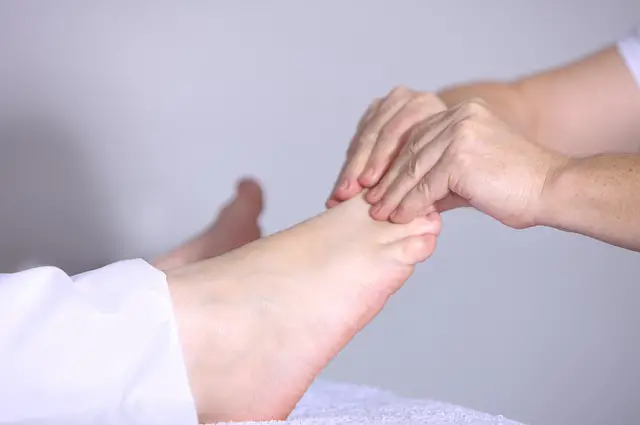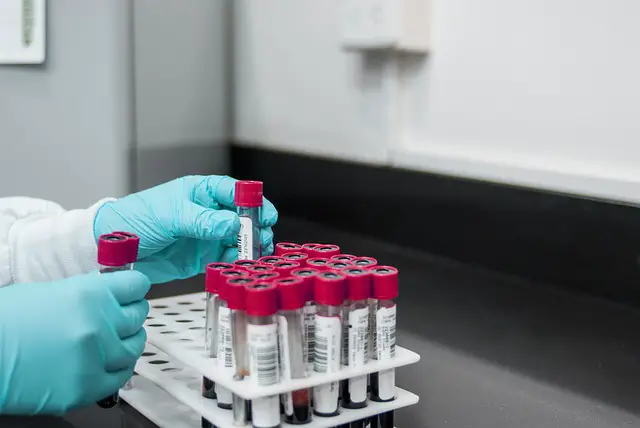50 Careers Related to Physiotherapy
Physiotherapy, also known as physical therapy, is a healthcare profession that focuses on improving movement, function, and overall well-being. Physiotherapists work with patients of all ages to address a wide range of conditions and injuries. In this blog post, we will delve into 50 diverse and rewarding careers related to physiotherapy, showcasing the various opportunities available to those passionate about promoting health and rehabilitation.
50 Careers Related to Physiotherapy
- Clinical Physiotherapist: Clinical physiotherapists work in hospitals, clinics, or private practices, providing direct patient care and personalized treatment plans.
- Sports Physiotherapist: Sports physiotherapists specialize in treating sports-related injuries and helping athletes optimize their performance.
- Orthopedic Physiotherapist: Orthopedic physiotherapists focus on musculoskeletal conditions, including fractures, joint replacements, and spinal disorders.
- Neurological Physiotherapist: Neurological physiotherapists work with patients with neurological conditions, such as stroke, spinal cord injuries, and multiple sclerosis.
- Pediatric Physiotherapist: Pediatric physiotherapists provide specialized care for infants, children, and adolescents with developmental or musculoskeletal issues.
- Geriatric Physiotherapist: Geriatric physiotherapists work with older adults to address mobility challenges, falls prevention, and age-related conditions.
- Cardiopulmonary Physiotherapist: Cardiopulmonary physiotherapists focus on patients with heart and lung conditions, helping improve breathing and endurance.
- Women’s Health Physiotherapist: Women’s health physiotherapists address pelvic health issues, such as postpartum recovery and pelvic pain.
- Hand Therapist: Hand therapists specialize in rehabilitating hand and upper limb injuries or conditions.
- Aquatic Physiotherapist: Aquatic physiotherapists conduct therapy sessions in water to reduce joint stress and aid in rehabilitation.
- Occupational Health Physiotherapist: Occupational health physiotherapists assist workers in preventing and managing work-related injuries.
- Oncology Physiotherapist: Oncology physiotherapists support cancer patients in managing physical side effects and improving overall well-being.
- Pain Management Physiotherapist: Pain management physiotherapists focus on reducing chronic pain and improving functional abilities.
- Respiratory Physiotherapist: Respiratory physiotherapists provide treatment for patients with respiratory conditions like asthma and chronic obstructive pulmonary disease (COPD).
- Musculoskeletal Physiotherapist: Musculoskeletal physiotherapists treat a wide range of joint, muscle, and ligament injuries.
- Manual Therapist: Manual therapists use hands-on techniques to address musculoskeletal issues and improve mobility.
- Prosthetics and Orthotics Specialist: Prosthetics and orthotics specialists work with patients who need artificial limbs or orthotic devices.
- Rehabilitation Coordinator: Rehabilitation coordinators oversee and manage rehabilitation programs for patients in various settings.
- Home Health Physiotherapist: Home health physiotherapists provide rehabilitation services in patients’ homes.
- Clinical Educator: Clinical educators mentor and train physiotherapy students and new graduates.
- Research Physiotherapist: Research physiotherapists contribute to scientific studies and advancements in the field of physiotherapy.
- Telehealth Physiotherapist: Telehealth physiotherapists provide virtual consultations and treatment sessions for remote patients.
- Exercise Physiologist: Exercise physiologists design and implement exercise programs for patients with various conditions.
- Mobility Specialist: Mobility specialists assist individuals with mobility aids and adaptive equipment.
- Sports Rehabilitation Specialist: Sports rehabilitation specialists focus on helping athletes recover from sports injuries and return to play safely.
- Assistive Technology Specialist: Assistive technology specialists assess and recommend assistive devices for patients with mobility challenges.
- Adaptive Sports Coach: Adaptive sports coaches train athletes with disabilities in adaptive sports and activities.
- Health and Wellness Coach: Health and wellness coaches promote healthy lifestyles and provide support for individuals managing chronic conditions.
- Pain Rehabilitation Specialist: Pain rehabilitation specialists use a multidisciplinary approach to manage chronic pain.
- Falls Prevention Specialist: Falls prevention specialists design programs to reduce falls and improve balance in older adults.
- Cancer Rehabilitation Specialist: Cancer rehabilitation specialists help patients recover from cancer treatments and manage side effects.
- Clinical Supervisor: Clinical supervisors oversee and guide junior physiotherapists in their professional development.
- Prosthetist: Prosthetists design and fit artificial limbs for patients with amputations.
- Biomechanist: Biomechanists study human movement to optimize physical performance and prevent injuries.
- Animal Physiotherapist: Animal physiotherapists provide rehabilitation for pets and working animals.
- Dance and Performing Arts Physiotherapist: Dance and performing arts physiotherapists address injuries and promote healthy movement in dancers and performers.
- Research Coordinator: Research coordinators manage and facilitate research projects in physiotherapy.
- Tele-Rehabilitation Specialist: Tele-rehabilitation specialists deliver virtual rehabilitation services to patients at a distance.
- Public Health Physiotherapist: Public health physiotherapists work on community health initiatives and preventive programs.
- Ergonomics Specialist: Ergonomics specialists assess and design workspaces for optimal comfort and safety.
- Assistive Technology Researcher: Assistive technology researchers develop and study innovative devices to assist individuals with disabilities.
- Prosthetics Researcher: Prosthetics researchers contribute to advancements in artificial limb technology.
- Gait Analysis Specialist: Gait analysis specialists study human walking patterns to identify and address gait abnormalities.
- Concussion Management Specialist: Concussion management specialists work with patients recovering from concussions and brain injuries.
- Adapted Physical Education Specialist: Adapted physical education specialists provide physical education programs for individuals with disabilities.
- Public Speaker and Educator: Physiotherapy professionals can pursue careers as public speakers and educators to promote health and rehabilitation awareness.
- Health Policy Advocate: Health policy advocates work to shape healthcare policies that support physiotherapy and patient access to services.
- Community Health Coordinator: Community health coordinators develop and manage community-based physiotherapy programs.
- Ergonomics Consultant: Ergonomics consultants provide expertise to businesses in optimizing workplace ergonomics.
- Wellness Center Manager: Wellness center managers oversee the operations of wellness centers, including physiotherapy services.
ALSO READ: 30 Careers Related to Geophysics
Frequently Asked Questions (FAQs)
1. What is physiotherapy, and what career options does it offer?
Physiotherapy, also known as physical therapy, is a healthcare profession that focuses on improving movement, function, and overall well-being through therapeutic exercises, manual therapy, and patient education. It offers diverse career options, including clinical physiotherapist, sports physiotherapist, pediatric physiotherapist, neurological physiotherapist, and many more.
2. How do I become a physiotherapist?
To become a physiotherapist, you typically need a bachelor’s degree in physiotherapy or a related field. After completing the degree program, you may need to pass a licensing exam to practice as a qualified physiotherapist.
3. What does a sports physiotherapist do?
Sports physiotherapists specialize in treating sports-related injuries and helping athletes recover from injuries, enhance performance, and prevent future injuries.
4. Can physiotherapists work with children?
Yes, pediatric physiotherapists work with infants, children, and adolescents to address developmental issues, musculoskeletal conditions, and neurological disorders.
5. What is the role of a neurological physiotherapist?
Neurological physiotherapists work with patients who have neurological conditions such as stroke, spinal cord injuries, Parkinson’s disease, and multiple sclerosis. They help improve mobility, balance, and functional independence.
6. Are there opportunities for physiotherapists in geriatric care?
Yes, geriatric physiotherapists work with older adults to address mobility challenges, falls prevention, and age-related conditions to improve their quality of life.
7. Can physiotherapists work in the field of sports and athletic performance enhancement?
Absolutely. Sports physiotherapists play a crucial role in helping athletes recover from injuries, prevent future injuries, and optimize their physical performance.
8. Are there opportunities for physiotherapists in women’s health?
Yes, women’s health physiotherapists address pelvic health issues, such as postpartum recovery, pelvic pain, and incontinence.
9. What are the prospects for physiotherapy careers?
The prospects for physiotherapy careers are promising, with a growing emphasis on preventive healthcare, sports medicine, and an aging population seeking rehabilitation services.
10. How can I specialize in a specific area of physiotherapy?
Specializing in a specific area of physiotherapy involves pursuing further education, certifications, or clinical training in your chosen field of interest.
11. Can physiotherapists work in research?
Yes, research physiotherapists contribute to scientific studies and advancements in the field of physiotherapy by conducting research and publishing findings.
12. Are there opportunities for physiotherapists in telehealth and remote care?
Yes, telehealth physiotherapists provide virtual consultations and treatment sessions to patients who may be located remotely or have mobility constraints.
13. How can I become an expert in sports rehabilitation?
To become an expert in sports rehabilitation, you may consider obtaining additional certifications in sports physiotherapy or pursuing a Master’s degree with a specialization in sports rehabilitation.
14. What skills are crucial for success in physiotherapy careers?
Key skills for success in physiotherapy careers include strong interpersonal skills, problem-solving abilities, empathy, physical stamina, and a deep understanding of human anatomy and movement.
15. Can physiotherapists work in interdisciplinary healthcare teams?
Yes, physiotherapists often collaborate with other healthcare professionals, such as doctors, nurses, occupational therapists, and speech therapists, to provide comprehensive patient care.
16. What is the role of a pain management physiotherapist?
Pain management physiotherapists use various techniques and exercises to help patients manage chronic pain and improve their quality of life.
17. How can I pursue a career in research as a physiotherapist?
To pursue a career in research, you can explore opportunities for research assistantships, pursue higher degrees (Master’s or Ph.D.), and actively participate in research projects during your education.
18. Are there physiotherapy opportunities beyond clinical practice?
Yes, there are various opportunities for physiotherapists beyond clinical practice, including education, management, research, and consultancy roles.
19. Can physiotherapists work in the community and public health settings?
Yes, physiotherapists can work in community health centers, schools, and public health programs to provide preventive care and health promotion services.
20. How can I stay updated on advancements in the field of physiotherapy?
Physiotherapists can stay updated on advancements by attending conferences, workshops, and continuing education courses. Joining professional associations and reading relevant journals is also beneficial.
Additional Information
Physiotherapy offers a vast array of exciting and rewarding career options for individuals interested in promoting health, rehabilitation, and physical well-being. Whether you aspire to work with athletes, children, older adults, or individuals with specific medical conditions, a career in physiotherapy provides numerous opportunities to make a positive impact on people’s lives. As the importance of physical therapy continues to grow in healthcare and wellness, the demand for skilled physiotherapists and related professionals remains high. Embrace the opportunity to contribute to the field of physiotherapy and embark on a fulfilling journey of healing and empowerment.








